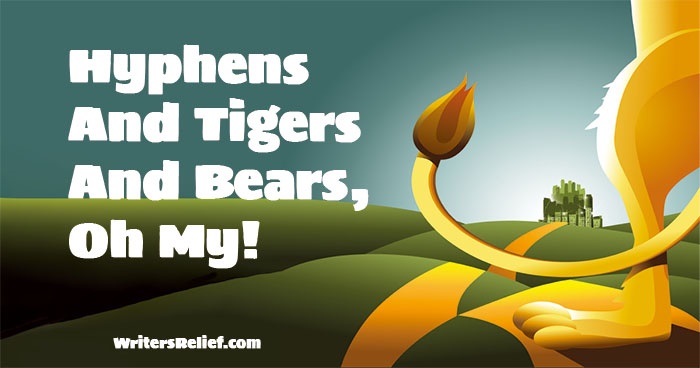
Updated July 2023
Is the hyphen becoming extinct? The Shorter Oxford English Dictionary, a compact, two-volume version of the 20-volume set, was recently released, and it has caused a small stir among those who care about such things: the SOED editors have done away with the hyphen in approximately 16,000 words, throwing a wrench into the works of hyphen-addicted old-schoolers.
Shortly afterward, The New York Times printed an article about it, along with a graphic of a gravestone inscribed with: Here Lies The Nearly-Departed, Seldom-Understood, Soon-To-Be-Forgotten Hyphen. It was a fitting epitaph. http://www.nytimes.com/2007/10/07/weekinreview/07mcgrath.html?_r=1&oref=slogin
The hyphen has long been a misunderstood creature, and there are no hard and fast rules about its usage. In general, it is used to provide breaks in lines, and in the spelling of certain words, such as father-in-law or anti-American.
Hyphens are also used as “suspension hyphens” to indicate a stand-in word (four-, five-, and six-gallon containers) and to link compound adjectives that precede a noun (We gave the six-foot man a wide berth).
Hyphens can also be used to avoid confusion as in 30-odd people. Without the hyphen, we might be looking at 30 strange people wandering around rather than approximately 30 folks.
We have also traditionally used hyphens to set off prefixes such as “self” and “ex,” and when two vowels need separation as in “pre-eminent,” although, today you’ll find “preeminent” in most standard dictionaries.
If you’re a little uncertain about the use of hyphens, don’t despair—you’re not alone. The English language is terribly unregulated, and your hyphen decisions should be based on common sense and consistency. If in doubt, look it up. At Writer’s Relief (an author’s submission service that proofreads AND researches the best literary agents and editors for creative writers), we use Merriam-Webster’s dictionary as the final authority, and the no-hyphen trend has been spotted there as well.
The SOED has provided us with thousands of newly de-hyphenated words that, according to editor Angus Stevenson, are “only reflecting widespread everyday use.”
So, now we have “bumblebee,” “airstream,” “leapfrog,” and “ice cream” (instead of “ice-cream”). The editors at SOED have been tracking trends for many years and report that the hyphen seems to be falling by the wayside. It is not, however, in any danger of disappearing for good. Otherwise we may get confused and go searching for a good looking date—you know, a date who is good at looking—or a fine tooth comb with which to comb our teeth.
Got the hyphen blues? Writer’s Relief proofreaders can help!



















In much of what I read, which includes a lot of student writing, hyphens are not only not disappearing but appear to be proliferating well beyond necessity. I see lots of what I call anxiety hyphens — ones whose only apparent function is to make the writer seem more erudite (and which, to a knowing reader, produce exactly the opposite effect). I rarely see examples where I think a hyphen ought to be added, and constantly see ones which should be taken out, as in:
Woods finished his round at three-under-par.
I’m going to be out-of-town for a week.
Two-thirds of the committee voted in favor.
This job can be done on-site.
So my experience is not of an endangered species but of a herd that needs a lot of thinning.